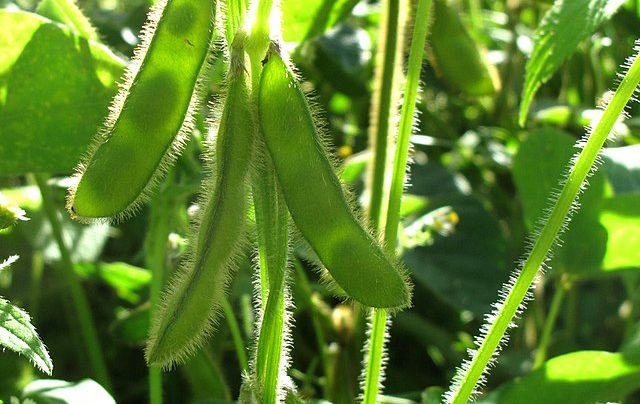Berlin – A slightly reduced cultivation of legumes is forecast for the 2023 harvest.
In particular, the smaller soybean area will have an impact. The cultivation of field peas and field beans could be expanded. According to an initial estimate by the EU Commission, the area planted with pulses in the EU-27 is expected to decline by a good 1% to just under 2.5 million hectares for the 2023 harvest. This would nevertheless be the third largest area in the past 10 years.
Soybeans have taken the largest share since 2018. At an estimated 1 million ha, soybean area is expected to shrink by nearly 9% from last year, but will remain in the six-figure hectare range. Field pea cultivation in 2023 is seen by the EU Commission at 816,000 ha, a 6% increase over the previous season. Field beans are expected to be drilled on a nearly 6% larger area of about 464,000 ha. In contrast, sweet lupin area is estimated to shrink by 4% to 205,000 ha.
Due to the increase in area under field peas and field beans, the 2023 crop could also be larger, depending on weather patterns. Based on average yields, 2.1 million tons of field peas could be harvested, around 14% more than in the previous year. While the volume potential for field beans is expected to increase by 8% to 1.3 million tons, sweet lupins are likely to be harvested at 273,000 tons, which is just under 5% less, according to the EU Commission. According to research by Agrarmarkt Informations-Gesellschaft (mbH), however, the decline in soybean acreage can be more than compensated for by higher yields. Thus, a record quantity of 2.8 million tons could be collected in 2023, almost 16% more than in 2022.
With a view to the national arable farming strategy, UFOP calls for it to be made visible with forward-looking crop rotation concepts and cultivation methods. This would be possible if the holistic approach to ecosystem services were also valued in monetary terms. This would give society’s demand for more biodiversity in cultivation-a price tag in economic terms as well.
This would be a prerequisite for crop rotation systems expanded to include protein crops to also develop into an economically sustainable component in arable farms. In the end, however, it is the consumer who decides at the store counter whether this “area commitment” and this performance are also desired and thus rewarded, the funding union notes. The staying power required is also shown by the “LeguNet” demonstration project funded by the German Federal Ministry of Agriculture, in which UFOP is involved as a project partner.
At the European level, the association welcomes the EU Commission’s deliberations on the further development of the European protein strategy into an overarching, holistic approach.
Source: Agrar-presseportal.de
